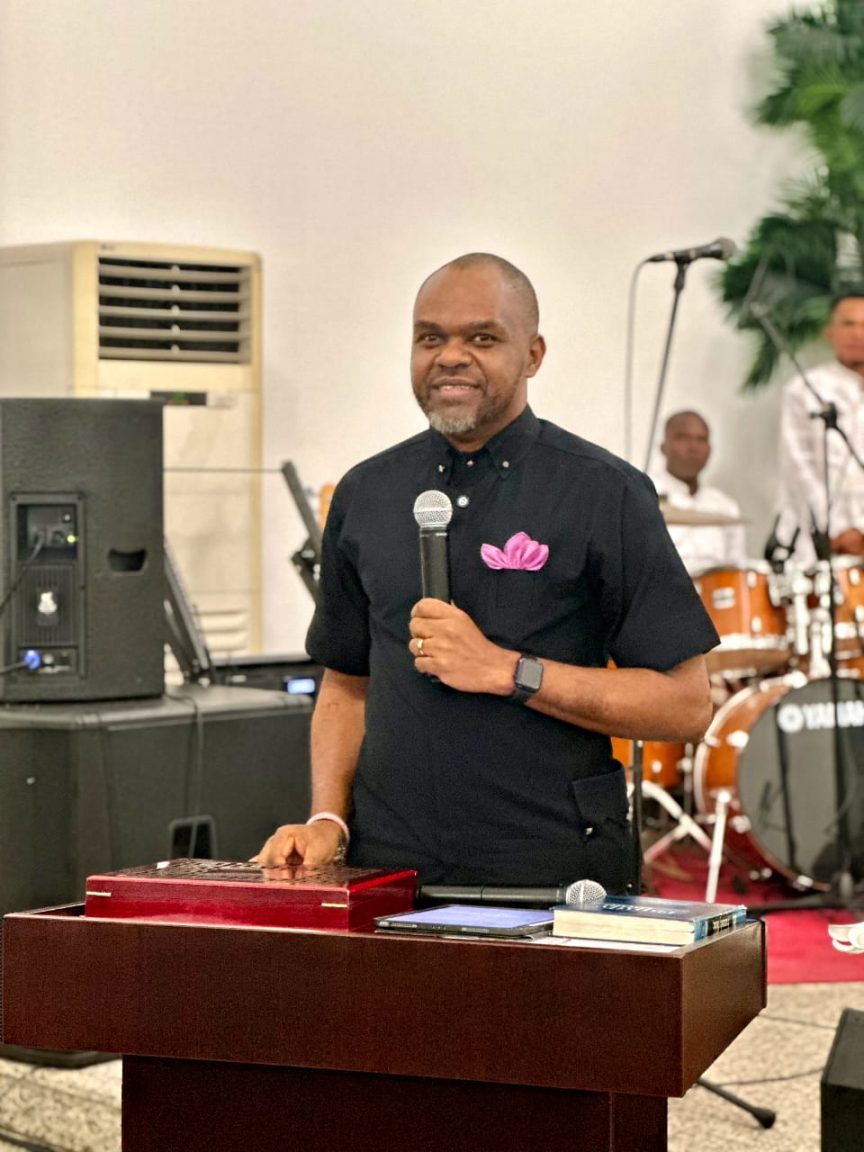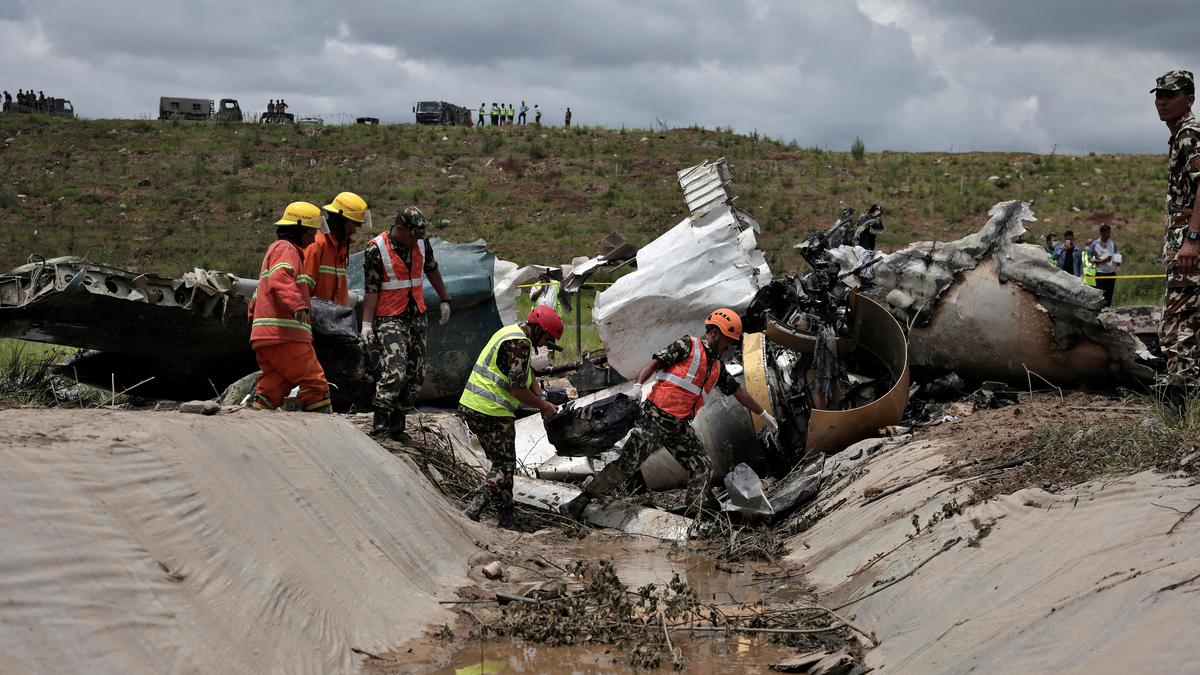For years, uncomplimentary features including obsolete books, lack of power supply, leaky roofs, and sparse library infrastructure have become an integral feature of public libraries. Visits to some of these facilities in the South-East and South-West reveal that both regions are locked in a wedlock of pathetic public libraries. Attempts by governments to turn things around have been tepid and in some cases, non-existent. Expectedly, the impact of this on learning in the zones is telling, LAWRENCE NJOKU, SEYE OLUMIDE, AYODELE AFOLABI, ROTIMI AGBOLUAJE, MOYOSORE SALAMI, ADEWALE MOMOH, OLUWOLE IGE, AZEEZ OLORUNLOMERU, OPEYEMI BABALOLA, GORDI UDEAJA, CHARLES OGUGBUAJA, and NNAMDI AKPA report.
Sidney Sheldon, an American writer, who was prominent in the 1930s for first working on Broadway plays, and thereafter in motion pictures it was who opined that, “Libraries store the energy that fuels the imagination.”
The writer who wrote a successful comedy, The Bachelor and the Bobby-Soxer, which earned him an Oscar in 1948, added that libraries “open up windows to the world and inspire us to explore and achieve, and contribute to improving our quality of life.”
For nearly four years, Stephen Kolawole, a millennial, and student has not patronised a public library in the course of his academic pursuits. This is not because he has no knack for doing so, but because in his time, these all-important facilities are not just few and far between, but have been scorned and technically rendered useless by subsequent governments.
Left with no option, Kolawole said that in order not to be left behind or have his windows to the world shut, he resorted to the use of the Internet that he procured at home to do much of his work and research.
For years, many young Nigerians have failed to improve the quality of their lives by expanding their knowledge, or nurturing their latent reading skills hence live most parts of their lives in doubt, contrary to the advice by British novelist, and screenwriter, J. K. Rowling, who said: “When in doubt go to the library.”
Rasheed Zanu, who lived in the Ebute Meta area of Lagos State throughout his primary and secondary school days during the 1970s to mid-1980s, is happy that he maximised the use of the public library in the area to clear his doubts.
Recalling his days as a regular at the public library in Ebute Meta before writing his West African Examination Council (WAEC), in 1985, Zanu recounted how arduous a task it was for library users to secure a seat.
“Securing a seat required you to be at the library gate (which normally opens at 8 am) as early as 7 am or before then otherwise you may not get a place to sit inside the library.
Babatunde Olalere, another regular library user of yesteryears, who then resided at Ebute Meta, told The Guardian how secondary school students ceaselessly poured into the library to read in those days.
“Apart from the desire to read and expand one’s horizon, there was also the fun of interacting and exchanging knowledge among readers in those days. It is over 40 years ago, and priorities are changing, and the story of public library usage has changed; diminished to the barest minimum,” he said.
Kolade Ajomale, who graduated from Saint Timothy’s College, Onike, Yaba, in 1983, corroborated Olarele’s claim of readers’ struggling to get a space inside the public library situated within Saint Agnes School, very close to Sabo, in the early 1980s.
He said: “You dare not get to the library anytime after 7.00 a.m. if you want to secure a seat inside the main building otherwise you’ll have to either hang around or return to your house. The competition among Nigerians, especially the younger ones to use public libraries in those days was quite high. It got exceptionally competitive whenever WAEC, or General Certificate Examination (GCE) was being held, but today, the story is different.”
Public libraries play a crucial role in a country’s education system by providing free access to a wealth of information and resources through offering a diverse range of books, journals, and digital resources that are essential for learning and research.
They serve as a repository of knowledge accessible to everyone, regardless of socio-economic status, in addition to supporting lifelong learning by providing resources for all age groups.

Their role in promoting literacy by offering reading programmes, story hours, and access to books for young readers is very crucial for early childhood education and developing a reading culture.
It is in light of all these that the declining state of public libraries and poor management of existing ones across the South-West and South-East states are posing concern to critical stakeholders. These concerns are dire because of the overarching effect on the standard of education in the zones.
South-East, South-West in wedlock of decrepit, parlous public libraries infrastructure
MOST libraries across Southern region share similar attributes. They range from old buildings with leaking roofs, obsolete books, empty shelves, disused tables and chairs, uncomfortable ambience, overgrown shrubs.
Also, while the world is migrating electronically and libraries digitised to bring them up to speed, and make them fit for purpose in contemporary times, most libraries in these parts are without electricity and are manually driven.
With fond memories of borrowing books to read in Enugu State, and returning them to the library in the full glare of other students after “digesting” their contents, Mrs Felicia Ugwu, is pained that years after, schoolchildren are no longer enjoying such opportunities because of what public libraries have become.
For starters, the Central Library belonging to the state government is in a ruinous state. A suya (steak) spot welcomes any visitor into the premises, where parts of the one-storey building are leaking profusely, including the office of the Director of Library Services.
The shelves are filled with old and dusty books, an indication that the complex lacks maintenance. The reading desks, which bear ETF 2001 lend credence to the last time an intervention came the way of the facility.
The sordid situation of the Enugu State Library is compounded by the fact that it is helmed by several motor parks, as well as the largest market in the state, the Ogbete Main market.
These setups that surround the library produce disturbing noises that are amplified by those produced by commercial buses that are hooting and blaring their horns as they jostle to load and offload passengers.
Movement around the area is also cumbersome due to the level of consistent traffic jams within the market and motor parks’ axis. Despite its importance, the power supply to the facility was disconnected over five years ago due to the management’s inability to settle accumulated bills. Thus, the place is always stuffy and inconvenient for readers to settle in. Electrical gadgets and other appliances such as fans, light bulbs, and even photocopiers have not worked for years, and the situation is made worse by the fact that both a small petrol electricity generating set and an outdated diesel engine, which malfunctioned a long time ago.
When The Guardian visited the facility, grasses had taken over the premises as the lone lawn mower that was in service went bad years ago and there have been no funds to repair it.
Inside the reading hall, only three people were seen with reading materials, which they brought in from outside. One of the readers told The Guardian that she resorted to using the facility in the absence of a better alternative. She added, however, that she could not stay beyond 1.00 p.m. due to the searing heat that pervades the place after midday.
“If I had a choice, I wouldn’t come here. It is not conducive to human habitation. You cannot concentrate most times because of the noise, especially in the afternoon.”
To use the facility, users pay an annual subscription fee of N1,000. Confirming the pathetic state of things, the Director of Library Services in the state, Caroline Okolie, admitted that obsolete facilities seriously affect library services in the state. She is, however, optimistic that soon things will be turned around by the present administration.
“A team from the state government visited us some time ago, and the members went round to see things for themselves. They interviewed us regarding our challenges, and thereafter we compiled our requisitions and forwarded them. So, we are waiting for the government’s response,” she stated.
In Abia State, the e-library and conventional library in Umuahia may be in a functional state, and their services patronised by students and researchers, but the rot underneath is telling.
Apart from the infrastructure decay and obsolete facilities, poor funding, and inadequate staff constitute serious concerns. The conventional Library at Umuahia, which has a capacity for more than 150 users, still undertakes book-lending services, and referencing, but earns no revenue/income. Top of their worries include a leaky roof part of which was completely blown off and flooding of the premises. The now-grounded mobile library (vehicle) that enabled the rotation of mobile library services is also a worry for the management, just the same as the failure of publishers to deposit copies of their publications (as statutorily mandated). The facility also contends with poor power supply among others.
The management consequently urged the state government to do the needful to improve the situation and also welcomed the move by Governor Alex Otti to address the rot in the education and other sectors.
Moved by the derelict state of the libraries in Ebonyi State, Governor Francis Nwifuru appointed an Adviser on library sciences. Until the current administration came on board, the three major libraries located in the three senatorial zones of the state were in a sorry state. Dilapidated and lacking a power supply, they are also without new books and appropriate facilities.
With some of these challenges still manifest, the Senior Special Adviser to the Governor on Library Science, Nwoga Pius, assured that the government desires to restore them to the right state so that students and researchers can rely on them for their educational needs.
“People were not visiting these libraries because they had nothing to offer readers. Due to unavailability of power in these facilities, the duration of service to the public is now 8 am to 6 pm, but when the power supply is restored, we will extend it to probably 9.00 p.m. or 10,00 p.m.,” he said.
“The buildings are all dilapidated and the governor has approved the total renovation of all the buildings, as well as, the inclusion of all the facilities that will make them modern libraries, and guarantee the comfort of its users, including modern books,” he added.
Between 2011 and 2019, the then-governor of Imo State, Rochas Okorocha, relocated the State Library to a site in New Owerri, which has a large expanse of land and structures.
A recent visit to the premises showed a sorry environment. With workers’ morale at its lowest ebb, books, newspapers, magazines, and other reading materials were antiquated, and there was no single user in the reading halls.
Some members of staff confided thus in The Guardian: “We do not receive books from the state government. Funding this place to purchase books has been a major challenge. Several years ago, there were books. Even students and individuals were coming here to read and carry out research. Nowadays, such does not happen.

“Our major source of revenue, which is reading cards of about N500 per reader or library user is no longer there. As you can see, there is no single reader here and the place is a shadow of its former self. There are no newspapers here. This is not supposed to be so. Payment of salaries is also a major challenge, and this library board requires a total overhaul to make it fit for purpose,” they said.
The situation in Ekiti State, which prides itself as the “Fountain of Knowledge” is no different, as library users routinely lament the dilapidated state of the Ekiti State Library Complex, while the National Library in the state operates from a one-room apartment near the old Governor’s Office in Ado Ekiti is also a sorry sight.
On a recent visit in May, only six users managed the only portion that the roof had not been blown off at the Ekiti State Library. It was observed that there were no electric light bulbs to illuminate the place; books placed on shelves were destroyed by the rains, just as all the staff were crammed into one office because their offices had been destroyed by rain.
At the National Library, there was only one staff present to attend to users. A look at the register of the library showed that only seven people have visited the library since 28th February 2024. It was also discovered that there were no toilet facilities attached to the National Library, just as there was no space to display books.
Commenting on the state of the two libraries, a user Mr Olorunfemi Bidemi, said that the condition of the two government libraries cast doubt on the avowed commitment of the government to educational development.
He urged Governor Abiodun Oyebanji, to urgently look into the library and rebuild the structure, adding, “Many books have been destroyed by the rain. We need to reorganize our priorities, and put the library maintenance on the front burner,” he said.
Most equipment including photocopiers, the power-generating set, and books shelves could not be put to use due to lack of space. In Oyo State, the surroundings of the Oyo State Library Board at Dugbe, Ibadan, betrays what a reading environment should look like. Inside the facility is equally disheartening.
Additionally, makeshift shanties cluster the precincts of the library making it difficult for visitors to recognise its presence. Random sampling carried out among students, revealed a worrying situation. While many of them hardly know where public libraries are located, some don’t even know that public libraries exist.
This perhaps explains why the standard of education in the state is on the decline. The reference section, located on the first floor, is largely deserted, with only one patron present aside from the staff. The shelves are filled with old, dusty books, revealing a lack of maintenance and updates.
Apart from the Headquarters in Dugbe, the Oyo State Library Board operates several branches, including the Bodija Community Library, Elekuro Children’s Library, and the Oyo Zonal Libraries.
During a visit, a staff member, who pleaded anonymity, explained that while the library still receives visitors, usage has significantly declined compared to previous years.”
In April 2024, the library recorded a total of 417 readers, comprising 254 males and 163 females. This is a small number compared to what it used to have in the past.
The situation in Ondo State is not different from what is happening in other parts of the South West. Apart from the fact that the state library is now a shadow of itself, some of the librarians were not seen in their various offices, while the over 100 reading rooms had just one user.
Some spaces on the bookshelves were also empty, and while most of the books were old and disheveled, they were also obsolete worn-out covers. A member of staff attributed the drop in the number of people that patronise the facility to the dire economic situation in the country, as well as social media trends.
He said: “When they come to read, the normal procedure is for them to get the access card, which is N500 per annum. We even encourage them to pay at their convenience to be regulars, but many users cannot afford the money.”
The situation is not different at the National Library of Nigeria, which is situated along Oda Road, Akure. The calm ambiance of the vast compound resonates with the serenity that a library ought to be, but the reading rooms constitute a ghost town.
Information on the attendance register indicated that only seven persons were in the reading rooms on May 30, 2024, while as of noon on May 31, 2024, no reader had arrived.
A member of staff said: “People still come here to read. We open by 9.00 a.m. and close by .:00 p.m. from Monday to Friday. On Saturdays, we open by 9.00 a.m. and close by 2.00 a.m.”
Public libraries in Ogun State are also a worrisome sight. Users are no longer patronising the state library. One of the major factors causing this is because the libraries are not computerised and facilities are in a poor state.
When the Director of the Lagos Library Service, Oyadipe Asmiyu Amoo, asserted that state libraries have been standardised, and are offering quality services, one can’t help but wonder the cause of the growing apathy among residents as far as the use of public is concerned.
But the answer is not far-fetched as some of the 13 libraries that exist in Lagos State, have not yet developed to the expected standard. Amoo had recently at a function organised by the Lagos State Library Services held for Secondary school students, claimed that the state libraries offer a conducive environment and e-libraries.
But when The Guardian visited the Ikeja Secretariat Library, Herbert Macaulay Library, Yaba, the conditions of those libraries were against the assertion made by Amoo.
While the Herbert Macaulay library opens at 8.30 a.m., library users there insist that the discomfort that they experience there is a discouraging factor, which they have continued to bear because of the little or no choice that they have.
One of the library users said that they often come to the library with their hand fans due to lack of electricity, and when there is a public power supply, the air-conditioners and fans may not be working.
An official in the library, who pleaded anonymity, said that out of the seven hours and 30 minutes of operation daily, the Yaba Library is only powered with a generator for two hours, from Monday to Friday.
Although she said that the library is averagely patronised because of its proximity to the Yaba College of Technology (YABATECH), and the University of Lagos (UNILAG), the level of patronage has dropped significantly compared to what was obtained in the past.
A library user, John Kelechi, said that one of the major flaws in libraries in Lagos State is the absence of Internet facilities.It was the same scenario at the Ikeja Secretariat Library, where an official there confirmed that the e-library was not functional, since there was no Internet facility.
In Osun State, the major factors militating against the proper functioning of both public and private libraries are power outages and, a dearth of books and e-materials.
A visit to the National Library, located on the stretch of the Gbongan-Ibadan Expressway, and the Osun State Library Board, Oke-fia, in Osogbo indicated that those facilities are currently stocked with outdated books. Both suffer from the irregular power supply, and the number of residents that patronise them has declined.
At the Osun State Library Board Complex, only a handful of people were spotted inside the library. Failure to prioritise funding, and invest in digital resources significant issue for public libraries
SOPHIA Adeyeye, the Chairman of the Nigerian Library Association, Oyo State Chapter, and the Head of the Department of Information Management, Lead City University, Ibadan, said that Nigerian libraries are faced with severe challenges, including funding deficits.
“Many public libraries in Nigeria are in a state of disrepair, they often suffer from inadequate facilities, including poor lighting, ventilation, and restrooms. The lack of funding hinders their ability to invest in digital resources, maintain infrastructure, and purchase new books. This problem is exacerbated by their reliance on limited government support and the absence of private sector investment,” she added.
In the digital age, libraries help bridge the digital divide by providing access to computers, the Internet, and digital literacy programmes. This is especially important for individuals who may not have access to technology at home.
Libraries also teach critical information literacy skills, helping individuals to find, evaluate, and use information effectively. This is essential in an era of information overload and misinformation.
The Director of Library Services in Enugu State, Okolie, agrees that obsolete facilities have affected library services in the state and country hence the need for governments to make haste to redeem the situation.
She also added that setting up e-libraries will not only shore up revenue for states but will bring back readers to public libraries.
Dying reading culture a national malaise
BEYOND the challenge of dilapidated library structures, inadequate, or non-availability of modern and relevant books on the shelves, poor facilities, and unfriendly environments in public libraries, the declining reading culture in the country is also a major challenge.
Consequently, a reader, Mr Ademola Bamidele wants both the federal and state governments to embark on a campaign through the National Orientation Agency to sensitise people to read one book per week.
He stated that the advent of many online libraries on social media has made library usage less important because readers can get many of what is needed at their fingertips.
The pathetic state of public libraries is also the reason that younger Nigerians see these facilities as uninviting, inclement, and unconducive for learning. So, governments must gird their loins if they intend to revive the dying reading culture.
For the Osun State Librarian, Mrs Funke Tina Kolawole: “The culture of reading among Nigerians is appalling. It is an understatement to say that it is declining, and there must be an urgent move to reverse the worrisome trend and restore the reading culture.”
While confirming that people hardly come to the library to read, she disclosed that public libraries generally are contending with a lot of challenges, not only in Nigeria, but all over the world.
She said the intervention was needed in the area of digitisation of library operations. “This is very key. We need more computer sets and an alternative power supply. Now there is no electricity supply, and we need to power our systems, but there is nothing we can do.”
An Educationist, Dr Cyprian Otiji, asked the various governments to find ways to make libraries attractive to the people once again, stressing that, “it promotes reading culture in the students and can be a source of revenue to the government if well provided for and managed.”


















